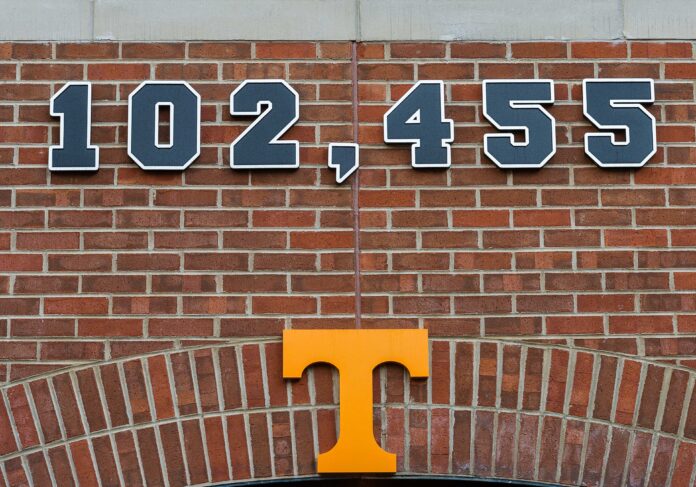In a recent development in the world of college football, the attorneys general of Tennessee and Virginia have jointly filed an antitrust lawsuit against the NCAA. This lawsuit takes aim at the NCAA’s ban on using name, image, and likeness (NIL) compensation in the recruitment of college athletes. It also responds to the NCAA’s investigation into the University of Tennessee.
The legal action, filed in the Eastern District of Tennessee, challenges NCAA rules against recruiting inducements. It alleges that the NCAA is enforcing rules that unfairly restrict how athletes can commercially leverage their name, image, and likeness during the critical recruiting calendar. Tennessee Attorney General Jonathan Skrmetti stated, “These anticompetitive restrictions violate the Sherman Act, harm the States and the welfare of their athletes, and should be declared unlawful and enjoined.”
Skrmetti and Virginia’s Jason Miyares have requested a temporary restraining order and preliminary injunction by Feb. 6, aiming to prevent the NCAA from enforcing NIL recruiting rules during the lawsuit’s proceedings.
The NCAA responded with a statement defending its enforcement of recruiting rules, which are established by member schools. The NCAA expressed concern that this legal action could further disrupt the college sports landscape, causing competitive imbalances among neighboring states and potentially harming student-athletes. The statement reaffirmed the NCAA’s commitment to protecting and expanding student-athletes’ NIL rights while maintaining the prohibition on impermissible recruiting contacts and booster involvement.
This legal challenge comes shortly after the University of Tennessee’s chancellor criticized the NCAA for investigating the school regarding potential recruiting violations related to NIL deals involving athletes and a booster-funded organization. This situation adds to the NCAA’s ongoing legal troubles, including lawsuits challenging transfer rules, athlete employment status, and television revenue.
NCAA President Charlie Baker and college sports leaders have called for federal regulation of NIL compensation and an antitrust exemption to provide stability and governance without constant legal battles. The NCAA recently approved NIL regulations designed to bring transparency to the athlete market and protect them from potential exploitation.
Meanwhile, Baker is advocating for rule changes that would enable schools to manage NIL activities internally and even facilitate direct payments to athletes through trust funds.
The NCAA’s investigation into Tennessee and The Vol Club, an NIL collective run by Spyre Sports Group, has intensified concerns. The recruitment of highly-rated quarterback Nico Iamaleava and his NIL contract with Spyre are under scrutiny.
Tennessee Chancellor Donde Plowman voiced her frustration with the NCAA’s handling of NIL regulations in a strongly worded letter to Baker. She emphasized the need for clear rules, stating, “Instead, 2½ years of vague and contradictory NCAA memos, emails, and ‘guidance’ about name, image, and likeness [NIL] has created extraordinary chaos that student-athletes and institutions are struggling to navigate.”
Support for the University of Tennessee’s stance has been widespread. Athletic director Danny White and Tennessee Governor Bill Lee both expressed their support for the university’s position and its commitment to student-athletes’ rights.
The University of Tennessee has been nothing but forthcoming with the NCAA, and I thank Chancellor Donde Plowman for taking a stand on behalf of all universities and student athletes. pic.twitter.com/UEiI5tM2Q5
— Gov. Bill Lee (@GovBillLee) January 31, 2024
In a sportsworld that is evolving rapidly due to NIL regulations, this lawsuit marks a significant step in the ongoing debate over the rights of college athletes and the NCAA’s role in their compensation. The outcome of this legal battle could reshape the landscape of college football and beyond.
